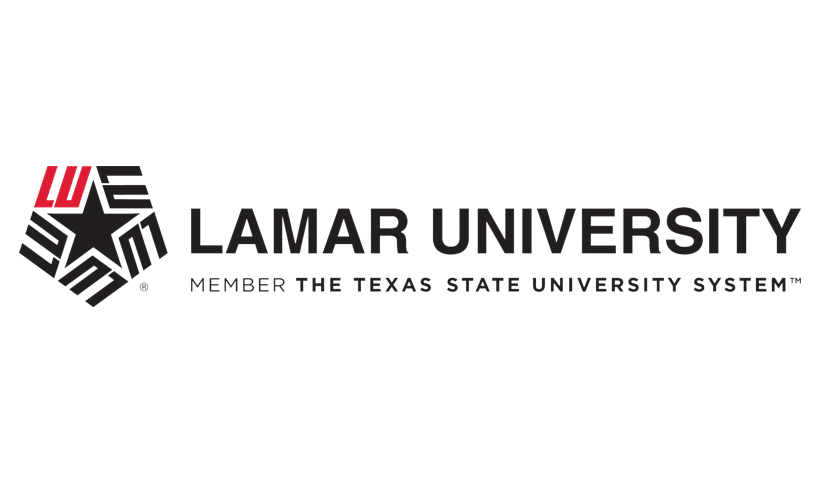With over 550+ school counseling degrees in our directory, we are among the best when it comes to school counselor education.
In our database, we have 514 school counseling degrees in the United States, with the majority at the graduate level (442 Master’s of School Counseling Degrees and 67 Doctorate of School Counseling programs.
At Counseling Degrees Online, you will find a listing of every degree of School Counseling, by degree level. You will also find comprehensive written literature on each degree level.
 Walden University : MS in School Counseling (CACREP Accredited)
Walden University : MS in School Counseling (CACREP Accredited) Walden University : MS Dual Degree in Clinical Mental Health Counseling and School Counseling (CACREP Accredited, six specializations to choose from)
Walden University : MS Dual Degree in Clinical Mental Health Counseling and School Counseling (CACREP Accredited, six specializations to choose from) Walden University : PhD in Counselor Education and Supervision, School Counseling (HLC Accredited)
Walden University : PhD in Counselor Education and Supervision, School Counseling (HLC Accredited) Grand Canyon University : Master of Education in School Counseling (CACREP Accredited)
Grand Canyon University : Master of Education in School Counseling (CACREP Accredited) Liberty University : MED: School Counseling (Online with required intensives)
Liberty University : MED: School Counseling (Online with required intensives) University of Denver : Master of Arts in School Counseling (CACREP Accredited)
University of Denver : Master of Arts in School Counseling (CACREP Accredited) The Chicago School : Ph.D. in Counselor Education and Supervision (Online Programs.)
The Chicago School : Ph.D. in Counselor Education and Supervision (Online Programs.) Colorado Christian University : School Counseling, M.A. (100% online, or hybrid format. )
Colorado Christian University : School Counseling, M.A. (100% online, or hybrid format. ) Sacred Heart University : Master of Arts in School Counseling (Online program, NECHE accredited)
Sacred Heart University : Master of Arts in School Counseling (Online program, NECHE accredited)Our school counseling expert writers have researching dozens of different school counseling programs at each level. From there we write about:
- Typical curriculum to expect in a school counseling degree
- Different options for studying your school counseling degree online
- Specific school counseling career options, opportunities, and salary expectations
There are over 500 different school counseling degree programs in our directory.
Counseling is a field that dedicates itself to the betterment of society. Regardless of whether it is one individual or a group, counselors work hard to assist with emotion issues, communication, and other overbearing life struggles.
For upcoming students that are searching for a specialty that makes a difference in the lives of children, however, there is one field that stands out above the rest – school counseling.
School counselors are in integral part of the education system. They provide assistance to children at all ages, helping with curriculum organization and college outlook.
There are a total of 514 school counseling degrees in our directory, with most options being available at the Master’s level.
Consider a Featured Online Counseling Program
| School and Program Information | Online Program? Entry Requirements | Course Information | |
|---|---|---|---|
|
Walden University
MS in School Counseling
 CACREP Accredited CACREP Accredited |
✔ Online
GRE scores not required
|
CACREP-accredited program provides a solid foundation in school counseling theories, approaches, and best practices while enabling you to gain hands-on experience.
|
Learn More |
|
Walden University
MS Dual Degree in Clinical Mental Health Counseling and School Counseling
 CACREP Accredited CACREP Accredited |
✔ Online
GRE scores not required
|
Gain insights and hands-on training to positively impact the lives of children, adults, and families with Walden's CACREP-accredited dual degree program.
|
Learn More |
|
Walden University
PhD in Counselor Education and Supervision, School Counseling
HLC Accredited
|
✔ Online
|
In the PhD in Counselor Education and Supervision with a specialization in School Counseling, you’ll build your theoretical and practical understanding of the systemic interplay among children, adolescents, families, and the stakeholders in their lives. Coursework in this program focuses on a family-systems view of intervention, with specific attention to developmental, cognitive, behavioral, educational, multicultural, and environmental issues. You’ll also examine group theory, process, and dynamics and how to apply these concepts to group counseling and guidance in school settings.
|
Learn More |
|
Grand Canyon University
Master of Education in School Counseling
 CACREP Accredited CACREP Accredited |
✔ Online
|
At GCU, school-counselors-in-training candidates develop into more than school counselors, they grow into compassionate, servant leaders with strong ethics and morals to positively make a greater difference in communities and the lives of children.
|
Learn More |
|
Liberty University
MED: School Counseling
 CACREP Accredited CACREP Accredited |
✔ Online
Online with required intensives
|
Liberty University’s CACREP-accredited Master of Education (M.Ed.) in School Counseling can help equip you to work as a school counselor in Christian, public, and private schools. Online and on campus. Training Champions for Christ since 1971.
|
Learn More |
|
University of Denver
Master of Arts in School Counseling
 CACREP Accredited CACREP Accredited |
✔ Online
No GRE Required; Minimum GPA 2.5 Required
|
With no GRE required, earn your CACREP-accredited Master's in School Counseling online in as few as 24 months from the University of Denver.
|
Learn More |
|
The Chicago School
Ph.D. in Counselor Education and Supervision
|
✔ Online
Master's Degree Required.
|
Prepares graduates to act as educators and leaders in the field of counseling.
|
Learn More |
|
Colorado Christian University
School Counseling, M.A.
HLC Accredited
|
✔ Online
Bachelor's Degree
|
Complete in as little as 30 months of consecutive coursework. Required 5-day, on-campus residency each summer of the program. CACREP is in process.
|
Learn More |
|
Sacred Heart University
Master of Arts in School Counseling
NECHE accredited
|
✔ Online
GRE/GMAT not required
|
The online Master of Arts in School Counseling degree from Sacred Heart University delivers the expertise you need to become an ethical and data-driven school counselor. With training from expert educators and a curriculum founded on the latest research and current best practices, you'll discover what it takes to support PK–12 students through academic development, college and career readiness and social-emotional learning. Next Start is Summer 2023.
|
Learn More |
*Sponsored Counseling Programs
For detailed degree information, view the guides to:
Online CACREP Accredited programs | Online MPCAC Accredited programs
Education Requirements for School Counseling
These professionals are a reliable resource for the children within school systems, as both an adviser and confidant. Upcoming professionals can expect to spend around 4 years in an undergraduate program, 2 years for a master’s degree, or 4 years for a doctoral degree. After completion of the required degree programs, graduate must also engage in approximately 2 years of supervised training.
As a student searching for the right school, it is important that accreditation and reputation be considered when browsing local available degree programs. Each state has a variety of school counseling programs for consideration, each carrying a heavy curriculum that is relevant to the job itself.
Typical School Counselor Classes
As a new university student, school counseling prospects will be exposed to typical educational requirements. Taking courses in English, math, and science are prerequisites for any major, including school counseling. For undergraduate studies, future school counselors will find that psychology degrees or counseling degrees are appropriate, both providing psychological concepts as a specialty of the degree program.
However, since this field of study is within the education system, there will be courses that include educational aspects as well as behavior health and development. After an undergraduate degree is completed, students can move into the more specialized path of school counseling, with most preferring master’s degrees as the next path.
Graduate Degrees in School Counseling
There are two options for graduate studies in school counseling. Master’s degree students will continue with approximately 2 years of graduate study in this field. Doctoral level learners will continue for another 4 years, typically.
 Walden University - MS in School Counseling (CACREP Accredited)
Walden University - MS in School Counseling (CACREP Accredited)
 Grand Canyon University - Master of Education in School Counseling (CACREP Accredited)
Grand Canyon University - Master of Education in School Counseling (CACREP Accredited)
 Liberty University - MED: School Counseling (CACREP and NCATE through CAEP Accredited)
Liberty University - MED: School Counseling (CACREP and NCATE through CAEP Accredited)
 University of Denver - Master of Arts in School Counseling (CACREP Accredited)
University of Denver - Master of Arts in School Counseling (CACREP Accredited)
 The Chicago School - Ph.D. in Counselor Education and Supervision (WASC and WSCUC Accredited)
The Chicago School - Ph.D. in Counselor Education and Supervision (WASC and WSCUC Accredited)
 Colorado Christian University - School Counseling, M.A. (HLC Accredited)
Colorado Christian University - School Counseling, M.A. (HLC Accredited)
 Sacred Heart University - Master of Arts in School Counseling (NECHE Accredited)
Sacred Heart University - Master of Arts in School Counseling (NECHE Accredited)
Online School Counseling Degrees
Online School Counseling Degrees are most often at the Masters level. Online degrees are becoming more prevalent at highly recognized universities, and CACREP does recognize multiple Masters in School Counseling programs that are online.
Masters in School Counseling
Most schools require a Masters in School Counseling degree to be a school counselor. There are many Masters programs available, especially online Masters in School Counseling degrees. Keep accreditation and licensure in mind as you pursue your Masters degree.
View All Masters of Counseling Programs or Online Master of School Counseling Programs
School Counseling Career Guide
View our School Counseling Career Guide to see the expectations for salary for school counselors, education expectations for school counseling jobs, job growth statistics, and what responsibilities you may have as a School Counselor.
Review the Online Masters in School Counseling guide to learn more about graduate-level school counselor degrees.
Top Degrees in School Counseling
Although school counseling specific programs begin at the master’s level, associate’s and bachelor’s students can prepare to succeed in graduate level programs by earning a psychology degree at the undergraduate level.
Masters in School Counseling
Master’s degrees in school counseling is your key to starting your career as a school counselor, whether you want to work at the elementary, secondary or college level. With the growing complexity of the education landscape, there are more options for master’s levels degrees than ever before.
View Master’s Degrees in School Counseling
Education Specialist Programs
Education Specialist (EdS) degrees are also popular routes for students who want to become school counselors. Earning this kind of degree proves to prospective employers that you have advanced skills in a particular area, such as special education or adolescent counseling.
The EdD or PhD in Counseling
Earning your Doctor of Education (EdD) or Doctor of Philosophy in Education (PhD) can be the capstone of your school counseling education, giving you the highest qualifications for positions in the field. By the time you complete your degree, you can be a leader in your school system, or work for education-focused companies who could use your skills.
If you are not sure where to start while mapping your path to a school counseling degree, contact schools in your area to discuss where you are in your education and career. They can help you figure out what programs work best with your current education and professional resume.
Why Study School Counseling Online?
If you haven’t considered earning your school counseling degree online, you should compare online to traditional programs. Graduate students across the nation are taking advantage of accredited colleges and universities who offer reputable online degrees.
School Counseling Degrees Online
The classroom experience can put you in touch with your peers and professors just as easily, and in some ways more efficiently than brick and mortar experiences. The technology that students use, such as Dashboard, can help keep track of coursework deadlines and information, as well as administrative tasks that may include financial aid and other important things you need to keep track of.
View Online Degrees in School Counseling
You can tell just from the number of programs that are available, online school counseling degrees are worth comparing to traditional programs. Make sure you speak with counselors at each school you are considering to be sure you know what kinds of commitments you will need to make. Some programs require internship or limited campus experiences to complete the program.
It’s also a good idea to ask what companies have hired graduates who hold their online degrees. If you want to be a school counselor and earn your degree without putting your current career on hold, then compare online programs listed here to traditional programs in your area.
What Does a School Counselor Do, according to American School Counselor Association?
Parents, administrators, teachers and students considering a career in school counseling often wonder just what it is school counselors do on a daily basis. Why do we need school counselors? On a daily basis, school counselors are involved in character education, violence prevention, career planning and much more.
What is a School Counseling Degree?
School counseling degrees prepare students for work in education settings, or for companies that need the insight of professionals who understand the student mind. With your school counseling degree, you can train to be an important figure for students and teachers to look to for guidance in a variety of areas.
School counseling degrees can be very specialized, geared towards particular topics or grade levels. By continuing to earn a higher degree or specialization, you can qualify for positions working directly with students, and making an impact at the administrative level. You can help design curriculum and analyze student behavior to help improve performance levels, and emotionally stability for the student population.
The National Board of Certified Counselors

Additionally, you should be aware of your state’s requirements to work in the professional position you desire. There are two main organizations that handle school counseling certifications. The National Board of Certified Counselors (NBCC) and National Board for Professional Teaching Standards (NBPTS) offer accreditations that are meant to prove your proficiency in counseling and teaching.
What can you do with a school counseling degree?
As you can tell by the variety and number of school counseling degree programs, there are many career outcomes with these types of degrees can choose. Elementary Schools, middle schools, and post-secondary schools all need counselors to work with their increasingly diverse student population.
Counselors are needed for children and young adults with special needs as well as those who face more common challenges that individuals at all grade levels may face. You may also work with other administrators designing curriculum that matches students’ learning style and psychological state.
The Role of the School Counselor, according to the American School Counseling Association (ASCA):

Today’s school counselors are vital members of the education team. They help all students in the areas of academic achievement, personal/social development and career development, ensuring today’s students become the productive, well-adjusted adults of tomorrow. Learn more about The Role of the Professional School Counselor. Or download the parent resource, Who Are School Counselors? See the list of appropriate and inappropriate duties for school counselors.
What does the future hold for school counselor degree holders?
With a growing population and world that is increasingly complex, school counselors have growing opportunities to shape the minds that will shape the world of tomorrow.
FACT: Student-to-Counselor Ratios
Although the ASCA recommends a 250-to-1 ratio of students to counselors, the national average is actually 491-to-1 for the 2013-2014 school year (the most recent year for which data are available). See how the individual states stack up (states alphabetically or states from lowest to highest ratio).
With the Bureau of Labor Statistics predicting an 8% climb in employment for school and career counselors between 2014-24, graduates can expect to seek work in schools, colleges, government and private companies who need professionals who understand the emotional states and educational techniques to teach people of all age and grade levels.
State Requirements to Know
Since states generally require a Master’s degree in School Counseling as a minimum for licensure, most students will choose this route. In graduate school, school counselors will study counseling concepts and how they apply to school-level children specifically. Students should review state licensure requirements to try to plan your degree and study plans to licensure.
Students will be required to take courses pertaining to individual and group therapy, testing, and career development. Education is a foundation for this specialty, so classes in education are required as part of the degree program.
Expect Early Childhood Education Classes
Early childhood education is a typical focus of this degree program, allowing for extensive knowledge of this age group and how this applies to an educational setting. Students will study in a classroom setting as well as in-person research, contributing to their overall knowledge of the field as a whole. Research projects are required, which test the competency of students that desire to work with children in a public setting.
A Note on State Counseling Licensure
In addition to completing the degree program, each state has its own experience requirement that must be finished prior to becoming licensed. Typically, students must complete around 300 hours worth of practicum with individuals in the early childhood range prior to completing their degree program.
Professional Counselor Requirements
After graduation, degree holders are required to work 2 years in a professional setting underneath a licensed school counselor. This experience will allow new school counselors to practice on their own with confidence.
With previous exposure to early childhood students, professionals will be accustomed to the design of educational programs and be prepared to assist students with future career planning and current routes of study. Once these requirements are met, future school counselors will go forward with the state board exam for school counselors and become licensed to practice within their respective state.
School Counseling Degrees by State
A Career as a School Counselor

Professionally, school counseling is a career choice that will provide an excellent lifestyle for its workers. School counselors earn $53,370 on average per year while employed in the United States.
They are trusted by schools to provide students with guidance throughout their educational career. Assisting students with career planning, curriculum planning, and life skills in general is a school counselors specialty. The job outlook is excellent for this field, with job growth nearing 10% for the next ten years.
The need for more qualified professionals is on the rise. For prospective students that have great communication skills and a desire to help children, the field of school counselors is in need. There is no end to the possibilities in this field, as it provides generously for those that are willing to put in the effort that is needed in an attempt to keep children on a path to success.
Pre-K & Elementary School Counseling
Elementary school counselors play a very important role, considering the young ages of the children they are responsible for advocating. This is the time period when their brains are maturing rapidly as they see and experience many things in this world for the first time. This includes realizing the challenges and limitations they may face that are beyond their control. This could include tough family situations, bullying, poor school performance, physical and mental handicaps, and other difficulties.
Helping pre-K and elementary school aged kids requires a special level of patience, understanding, and empathy towards children, in additions to a quality education. Those who pursue careers in this area can earn a median wage of $61,260, according to the Bureau of Labor Statistics.
Middle and High School Counseling
Middle school is a notoriously challenging and exciting time in one’s youth. However, with the excitement comes many new challenged and choices students must make that can impact their lives for many years. You can be a stable role model in students’ lives as they learn about societies dangers and how to be a responsible, successful person.
High school can hold many of the same challenges for students, but now they are more focused on what they will do when they graduate. There is enormous pressure on many students, whether in academics, sports, or personal issues, such as being an English as a Second Language learner, or family problems that can add stress to the school environment for the student, and sometimes their peers and teachers.
That is one reason why programs that are geared towards helping students become high school and middle school counselors will include curriculum that focuses on multicultural awareness, substance abuse, transition and career planning. You may also take subjects that work on coping strategies, curriculum planning, and peer relationships, which are all critical topics for an understanding of your students and how to affect your school system in positive ways.
The BLS states that secondary school counselors can earn a median wage of $74,130. You can also transition your professional experience into hospitals and clinics where this age group may also receive support. In psychiatric and substance abuse hospitals you can earn a median wage of $90,980 per year.
College Level Counseling Careers
If you want to become a college level counselor, you should visit the website for the American College Counseling Association (ACCA). They include important resources, so you can view new jobs that are available, as well as resources for current college counselors. Even if you haven’t earned your degree, it is important for you to be knowledgeable about what to expect when you do apply for professional positions and network in the field.
As a college counselor you can help students grow into adults who make wise decisions, and help them get through tough times that can occur at the college level. Students and adults of all ages need to know there are quality counselors they can work with through professional preparation and personal and peer issues. Academic institutions also need good counselors to help implement policies and curriculum that will give students the best chance of success while they learn, and after graduation.
[insert page=’nav-careers’ display=’content’]
School Counseling Specialization Focused Careers
There are also many specialized careers in school counseling that you can purse as well. Here are just a few of the areas you can work in the field:
School Counseling Director
School districts and colleges need someone to spearhead the shaping of policies and coursework so that students and teachers are working together for the best learning outcomes. As a school counseling director you can work at the administrative level and make a big impact in your role.
Special Needs Counseling
Counselors are also needed to work with students who face unique challenges that require a special skill set to work with. Special needs counselors are needed to work with students who have complex mental and physical challenges.
English as a Second Language
With a growing diverse student population, almost every district and institution needs counselors who can work with students from all socioeconomic backgrounds. Those who can work with ESL learners can help with this growing need.
Drug and Alcohol Counseling
Unfortunately, drugs and alcohol interfere with many students’ ability to learn and thrive. If you focus on drug and alcohol abuse in your studies, you can help students rebound from the negative side effects that substance can have.
If you are ready to pursue a career in one of these many areas of counseling, contact colleges and universities in your area today. Also, compare those programs to online options for students in your state.
Sources:
BLS
BLS
American College Counseling Association









